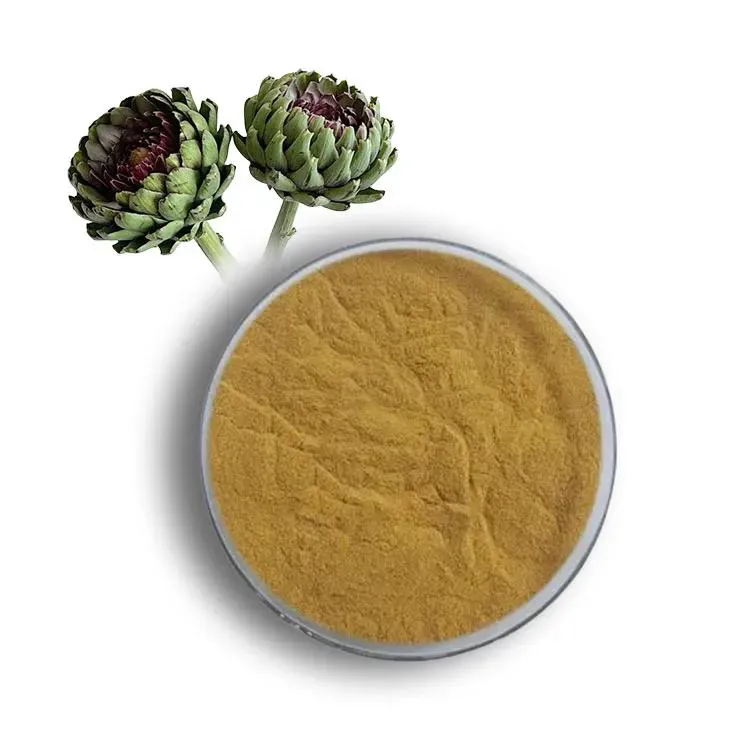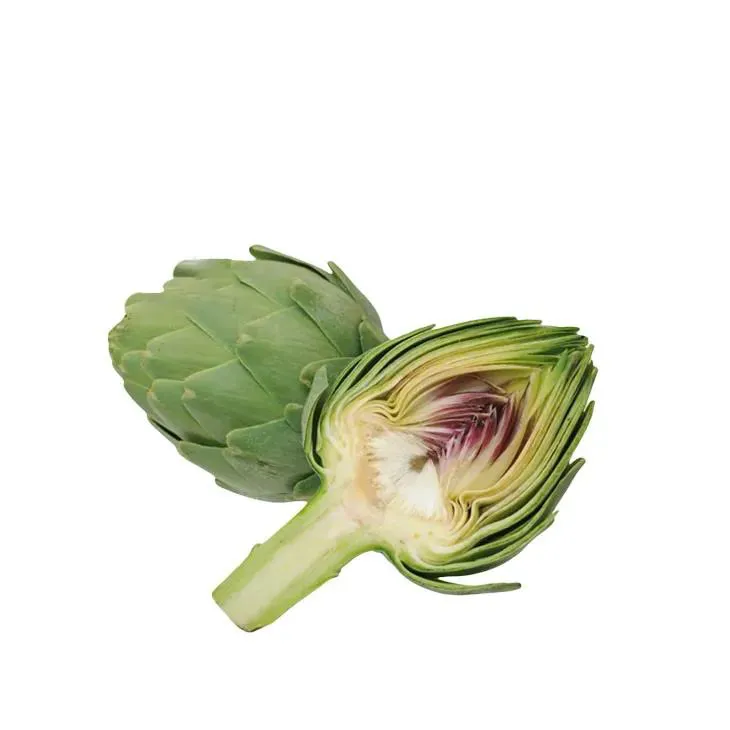- 0086-571-85302990
- sales@greenskybio.com
What is the best way to eat artichoke extract?
2025-10-31

The extract of the common artichoke (Cynara scolymus) — often in the form of leaf extract — is widely available as a dietary supplement and has been used for digestive support, liver health, cholesterol management and bile‑flow enhancement. Although the evidence base is still developing, many herbalists and supplement manufacturers provide guidance on how to use it. The key question is: how should you take Artichoke Extract for optimal benefit (i.e., what dose, form, timing, duration, and product quality)? In the sections below we explore the best practices for using Artichoke Extract — including what the research and product instructions indicate, as well as practical cautions.
Why does taking it “the right way” matter?
What are the factors influencing how you should take Artichoke Extract?
There are several factors to consider that influence how to take artichoke extract meaningfully:
Formulation & standardisation: Artichoke extract supplements vary in how they are prepared (leaf vs bud vs whole‑plant, dry extract vs liquid tincture), and the active compounds (for example cynarin, caffeoylquinic acids) are present in differing amounts. For example, one product shows 320 mg extract standardized to 13‑18 % caffeoylquinic acids.
Intended therapeutic goal: The intended use (digestive discomfort vs elevated cholesterol vs liver support) affects suggested dosage and timing. For example, doses of 300‑600 mg are suggested for digestion, while higher‑dose protocols (1,000‑1,800 mg or more) have been used for cholesterol lowering.
Timing relative to meals: Because artichoke extract may stimulate bile flow and fat digestion (via its “bitters” action), timing relative to meals — especially fat‐containing meals — may enhance effects.
Duration of use and dosing schedule: Some benefits may accrue only after sustained use (weeks), and splitting the dose across the day may be more effective than one large dose.
Product quality and safety: As with any supplement, ensuring quality, standardisation, and avoidance of contaminants is essential. The variation in formulations means you may not get consistent results unless you choose carefully.
Given these variables, it is not simply “take one pill a day” but rather “take it in the best possible way for your goals, with appropriate timing, dose and product quality”.

How should you take artichoke extract for best results?
What dosage range is supported?
While there is no universal “one size fits all” dosage for artichoke extract, guidance from clinical literature and manufacturer instructions provides a useful range:
For digestive support (e.g., fullness after meals, mild indigestion, bloating) many sources recommend doses around 300‑600 mg per day, sometimes split, of a standardized leaf extract.
For cholesterol or liver support, higher doses have been used in trials: for example, some studies used 600 to 2,400 mg daily, sometimes divided into multiple doses.
One guideline suggests standardised extract doses of 320‑640 mg daily (divided), but notes clinical trials have used up to 1,800 mg daily.
When the extract is unstandardised (e.g., crude dried leaf), dosages may be higher (e.g., 1‑4 g of dried leaves 1‑3 times daily).
Thus, a practical approach: begin at the lower end (300‑400 mg daily) and adjust upward (up to ~1,000–1,500 mg daily) only if indicated and tolerated, ideally under healthcare supervision.
When is the best time to take it?
Timing matters — depending on your objective:
Before meals: If you’re using artichoke extract mainly for digestive support (improving bile flow, fat digestion), many sources recommend taking it 15‑30 minutes before a meal, particularly one containing fat.
With meals: Some manufacturers advise taking the supplement with meals, especially if it may cause mild stomach discomfort. For example, one product says “Take 1 capsule 1‑3 times daily, preferably with food.”
Divided doses across the day: Especially when higher doses are used, splitting the daily intake into 2–3 doses rather than one large dose may support sustained bile stimulus and absorption.
Consistency is key: For cholesterol or liver‑supporting uses, taking the supplement consistently (same times each day) appears more important than exact timing relative to meals. One guideline: “divide the daily dose into 2‑3 equal portions taken with meals.”
Which form of artichoke extract is best?
Choosing the right product form enhances effectiveness and safety:
Standardised extracts: Look for products indicating standardisation to a specific percentage of active compounds (e.g., caffeoylquinic acids, cynarin). For example: “Dry extract 12:1 (63 %)” or “Standardised to 13‑18% caffeoylquinic acids”.
Capsules or tablets: These are common and convenient. For example one manufacturer: “400 mg extract with at least 10 mg cynarin” per capsule.
Tinctures or liquid extracts: May be useful when swallowing capsules is difficult or for more flexible dosing. For example, an oral solution: “Each ml contains 100 mg dry extract. Adults: 10‑20 ml three times a day before meals.”
Quality indicators: Choose products with third‑party testing, minimal fillers, clearly labelled extract ratio, and ideally from manufacturers with GMP practices. As a source notes: “supplements are not heavily regulated … choose products certified by independent organisations.”
How long should you take it?
Duration of use depends on your goals:
For acute digestive discomfort, improvement may be seen within days or weeks if the extract is taken before meals. One article: “In the case of acute digestive problems … the extract can lead to improvements with a single or short‑term intake.”
For lipid/cholesterol or liver support, sustained use is required. Many guidance sources suggest “at least 6 weeks” of consistent use, possibly longer for maintenance.
Monitor your outcome: keep track of digestive/clinical symptoms, lipids or liver enzymes (if applicable) in consultation with your healthcare provider.
Evaluate periodically: If no benefit is seen after an adequate trial (e.g., 8–12 weeks) then reconsider the regimen or whether artichoke extract is contributing.

What are special considerations and precautions?
What safety issues and contraindications should you know?
Even though artichoke extract is generally well‑tolerated, there are several safety considerations:
Allergies: Persons allergic to the daisy/aster family (Asteraceae/Compositae) may react (artichoke belongs to that botanical family).
Gallbladder/bile duct issues: Because artichoke extract stimulates bile flow, it is generally contraindicated or used with caution if you have a blocked bile duct or gallstones. For example: one source: “Contraindicated in cases of bile duct blockage, gall bladder empyema, ileus or bowel obstruction.”
Medication interactions: Although full interaction profiles are not robustly defined, artichoke extract may interact with bile acid sequestrants, cholesterol‑lowering medications, or other herbs that influence bile or liver metabolism. One source warns to consult a healthcare professional if taking medication.
Pregnancy and breastfeeding: Safety data are limited; many guidance sources recommend avoiding or using under supervision if pregnant or nursing.
Quality/contamination risk: As with any herbal supplement, ensure product purity. One article notes a case of liver damage from high consumption of artichoke infusion.
Side‑effects: Mild gastrointestinal discomfort, flatulence or loose stools have been reported.
What to track when using artichoke extract?
To evaluate whether the regimen is working and safe:
For digestive goals: track improvement in symptoms of fullness, bloating, fat‑intolerance, or post‑meal discomfort.
For liver/cholesterol goals: monitor lab parameters (ALT/AST, lipids) under physician oversight.
For timing/dose: note when you take the supplement (before meals, with meals etc) and whether you remember splitting doses.
For adverse events: note any unexpected symptoms (e.g., increased gas, abdominal pain, allergic rash, changes in stool) and discontinue if needed.
For compliance: ensure you are using a standardised product and a consistent schedule rather than sporadic use.

Practical summary: how to take artichoke extract
Choose a quality product: Look for an Artichoke Leaf Extract (Cynara scolymus) that is standardised (e.g., 13‑18 % caffeoylquinic acids or a defined cynarin content), free from major fillers, and from a reputable manufacturer.
Decide your target goal:
For digestive/bile support: aim for ~300‑600 mg/day of standardised extract.
For cholesterol/liver support: doses ~600‑1,800 mg/day in divided doses have been used.
Timing:
For digestion: take ~15‑30 minutes before meals (especially fat‑containing meals) to stimulate bile.
Alternatively, you may take with meals if that’s better tolerated.
Split the total daily dose into 2–3 servings if using higher doses.
Duration of use: Use for at least 6–8 weeks for sustained goals; for acute digestive symptoms shorter use may suffice.
Monitor: Track your symptoms, lab results (if relevant), any adverse effects. Reassess after the trial period.
Precautions: Avoid if you have a bile duct obstruction or gallstones without medical supervision; check potential interactions; avoid if you are allergic to plants in the daisy family; pregnant or breastfeeding individuals should consult healthcare professional.
Lifestyle synergy: Support with healthy diet (adequate fats for bile stimulation, avoid excess processed fats), regular movement, avoidance of prolonged large fatty meals if your goal is digestion. For cholesterol/liver support, incorporate exercise and diet changes alongside the supplement.
Final thoughts
In conclusion, the best way to take artichoke extract is not simply “take one capsule when you remember it” — rather it involves thoughtful selection of product, appropriate dosing, timing relative to meals, splitting the dose when needed, and using it for an adequate duration tailored to your goal. For digestive support, modest doses taken before meals may suffice; for liver/cholesterol support higher and divided doses may be warranted. As always, supplements are not a substitute for medical care, but when used properly they can complement diet, lifestyle and standard therapies. Make sure to consult with a qualified healthcare provider — especially if you have underlying medical conditions, are taking medications, or are pregnant or breastfeeding.
Visit Greenskybio.com, a great article source where you can learn about Supplements and their health benefits, you also can get the latest food Supplements. Green Sky Bio provides the best extracts and supplements. It is a Chinese self-developed brand that is trustworthy! Welcome to email us to inquire about our products.
TAGS:- ▶ Hesperidin
- ▶ Citrus Bioflavonoids
- ▶ Plant Extract
- ▶ lycopene
- ▶ Diosmin
- ▶ Grape seed extract
- ▶ Sea buckthorn Juice Powder
- ▶ Fruit Juice Powder
- ▶ Hops Extract
- ▶ Artichoke Extract
- ▶ Mushroom extract
- ▶ Astaxanthin
- ▶ Green Tea Extract
- ▶ Curcumin
- ▶ Horse Chestnut Extract
- ▶ Other Product
- ▶ Boswellia Serrata Extract
- ▶ Resveratrol
- ▶ Marigold Extract
- ▶ Grape Leaf Extract
- ▶ New Product
- ▶ Aminolevulinic acid
- ▶ Cranberry Extract
- ▶ Red Yeast Rice
- ▶ Red Wine Extract
-
Berberis aristata Extract
2025-10-31
-
Buckthorn bark extract
2025-10-31
-
Hawthorn powder
2025-10-31
-
Lotus leaf extract
2025-10-31
-
Eyebright Extract
2025-10-31
-
Lemon Balm Extract
2025-10-31
-
Red Wine Extract
2025-10-31
-
Fig Extract
2025-10-31
-
White mustard seed extract
2025-10-31
-
Bamboo Leaf extract
2025-10-31





















